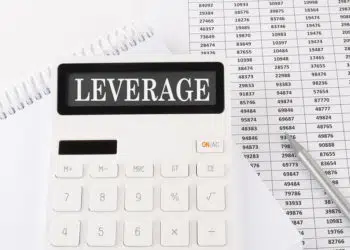A non-deliverable forward (NDF) is a contractual agreement in which two entities agree to swap certain currencies at a predetermined spot rate at a future date. As a result, contracts are paid in a widely traded currency, such as the US dollar.
The first step is to agree on a notional (or principle) amount and determine a (forward) exchange rate. Payment is made based on the difference between the existing spot rate and forward rate as per the contract.
NDFs frequently target restricted currencies such as the Chinese yuan. When the entities involved agree on a notional sum of money to be paid out, it results in a settlement. The contracts are settled in cash. A non-deliverable delivery status indicates that the currencies acquired and sold are not delivered on the agreed-upon maturity date.
NDFs are included in the OTC market since they are sold privately. Only the parties to the contract can write and agree to the terms of the contract. Because all criteria must be acceptable to both parties, the final conclusion is often in the best interests of everyone concerned.
How NDF works
With an NDF, you may lock in an exchange rate in the same manner as a forward contract. There are two parties who, rather than transferring money, agree on settling the difference in NDF and establishing exchange rates in cash. In the case of currencies that cannot be exchanged or are restricted in trade, this is advantageous.
Fixed exchange rates can be set in for currencies that cannot be delivered on time.
The foreign money cannot be exchanged once the deadline has passed. The currency must be exchanged with a bank situated in the nation where the currency cannot be delivered. When it comes to ensuring the total conversion rate, however, the overall cash payment is made on the day of the deadline at the spot rate.
The NDF’s conversion rate is compared to the spot rate at the time of expiration. If the final spot rate is advantageous or unfavorable in respect to the NDF rate, a cash payment to the bank or the customer will be made depending on the verified difference rate.
The Non-Deliverable Forward is a solution for firms that pay or receive payment in a non-deliverable foreign currency.
Working example
Let’s take an instance where an exporting company expects to get 100 million Brazilian Reals (BRL) in the next six months. It receives a 6.4 non-deliverable forward rate against the EUR. When this contract is put into action, it will ensure that the exporter receives at least EUR 15,625,000.
After six months, there are two probable scenarios:
- The euro strengthens against the Brazilian real, and the EURBRL exchange rate is 6.50. Therefore, in this case, the exporter will get EUR 15,384,615 on the spot market. In comparison to the NDF contract rate, the spot rate does not benefit the customer. NDF stipulates that the bank must compensate the exporters for any rate differentials resulting from the covered sum, as follows: = (BRL 100,000,000 / 6.40) – (100,000,000 / 6.50)= EUR 240,385
- The Brazilian real has strengthened against the euro, and the EURBRL exchange rate is 6.30. Therefore the exporter gets (100,000,000/6.30)= EUR 15,873, 015 on the spot market. If the spot rate is less than the contract rate, the customer wins. With the NDF, the customer is required to pay the bank a rate differential equal to (BRL 100,000,000/6.30) – (100,000,000-6.40) = EUR 248,015
Benefits of using an NDF
- They are useful when it is impractical to deliver currency physically.
- They are effective in hedging against FX fluctuations.
- They can be used to cushion the businesses against uncertain changes in foreign markets related to forex.
- The NDF may be customized to meet your specific requirements, including the date of fixation and the notional value.
The drawbacks of using an NDF
- When paying the net difference, they offer no protection from fluctuations in currency markets.
- NDF is mostly employed in currencies of emerging markets. The markets for such currencies are less liquid and more vulnerable than the markets for more established currencies.
- You will not be able to benefit from favorable changes in the spot rate.
- In the event of a cancellation or change, you may be liable for the cost.
In summary
Non-deliverable forwards are currency transactions between two parties that are paid in cash over the counter and have a short-term expiration date of the swap. Both parties’ profits and losses are recalculated based on the difference between the negotiated NDF rate and currently existing spot FX rates on the day of contract settlement.







